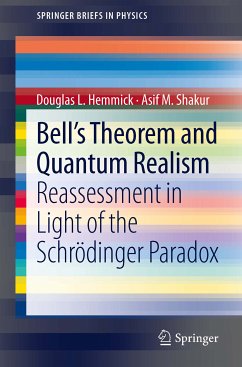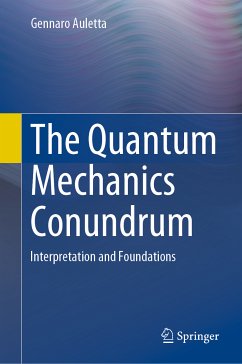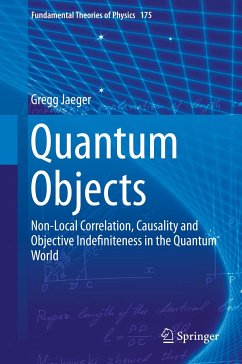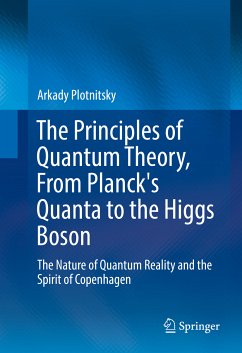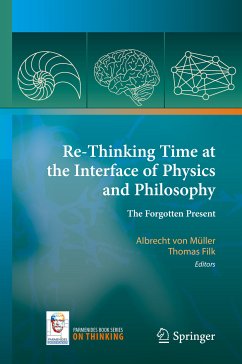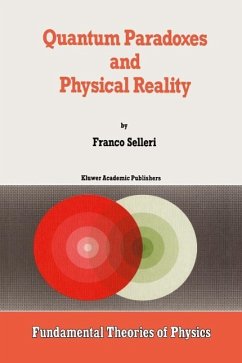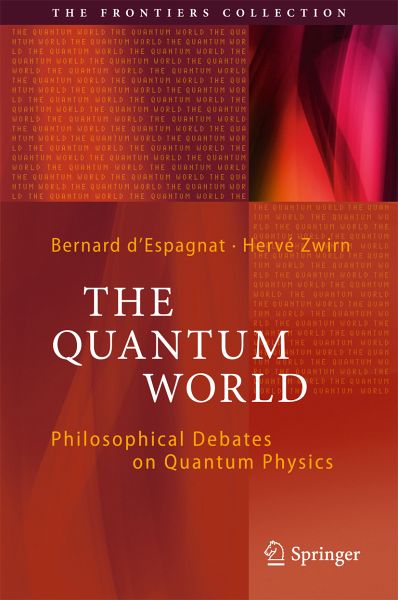
The Quantum World (eBook, PDF)
Philosophical Debates on Quantum Physics
Redaktion: D'Espagnat, Bernard; Zwirn, Hervé
Versandkostenfrei!
Sofort per Download lieferbar
48,95 €
inkl. MwSt.
Weitere Ausgaben:

PAYBACK Punkte
24 °P sammeln!
In this largely nontechnical book, eminent physicists and philosophers address the philosophical impact of recent advances in quantum physics. These are shown to shed new light on profound questions about realism, determinism, causality or locality. The participants contribute in the spirit of an open and honest discussion, reminiscent of the time when science and philosophy were inseparable. After the editors' introduction, the next chapter reveals the strangeness of quantum mechanics and the subsequent discussions examine our notion of reality. The spotlight is then turned to the topic of de...
In this largely nontechnical book, eminent physicists and philosophers address the philosophical impact of recent advances in quantum physics. These are shown to shed new light on profound questions about realism, determinism, causality or locality. The participants contribute in the spirit of an open and honest discussion, reminiscent of the time when science and philosophy were inseparable. After the editors' introduction, the next chapter reveals the strangeness of quantum mechanics and the subsequent discussions examine our notion of reality. The spotlight is then turned to the topic of decoherence. Bohm's theory is critically examined in two chapters, and the relational interpretation of quantum mechanics is likewise described and discussed. The penultimate chapter presents a proposal for resolving the measurement problem, and finally thetopic of loop quantum gravity is presented by one of its founding fathers, Carlo Rovelli.
The original presentations and discussions on which this volume is based took place under the auspices of the French "Académie des Sciences Morales et Politiques". The book will appeal to everybody interested in knowing how our description of the world is impacted by the results of the most powerful and successful theory that physicists have ever built.
The original presentations and discussions on which this volume is based took place under the auspices of the French "Académie des Sciences Morales et Politiques". The book will appeal to everybody interested in knowing how our description of the world is impacted by the results of the most powerful and successful theory that physicists have ever built.
Dieser Download kann aus rechtlichen Gründen nur mit Rechnungsadresse in A, B, BG, CY, CZ, D, DK, EW, E, FIN, F, GR, HR, H, IRL, I, LT, L, LR, M, NL, PL, P, R, S, SLO, SK ausgeliefert werden.



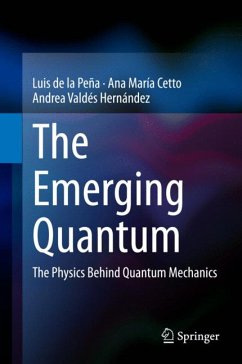
![Quantum [Un]Speakables II (eBook, PDF) Cover Quantum [Un]Speakables II (eBook, PDF)](https://bilder.buecher.de/produkte/53/53031/53031852n.jpg)
